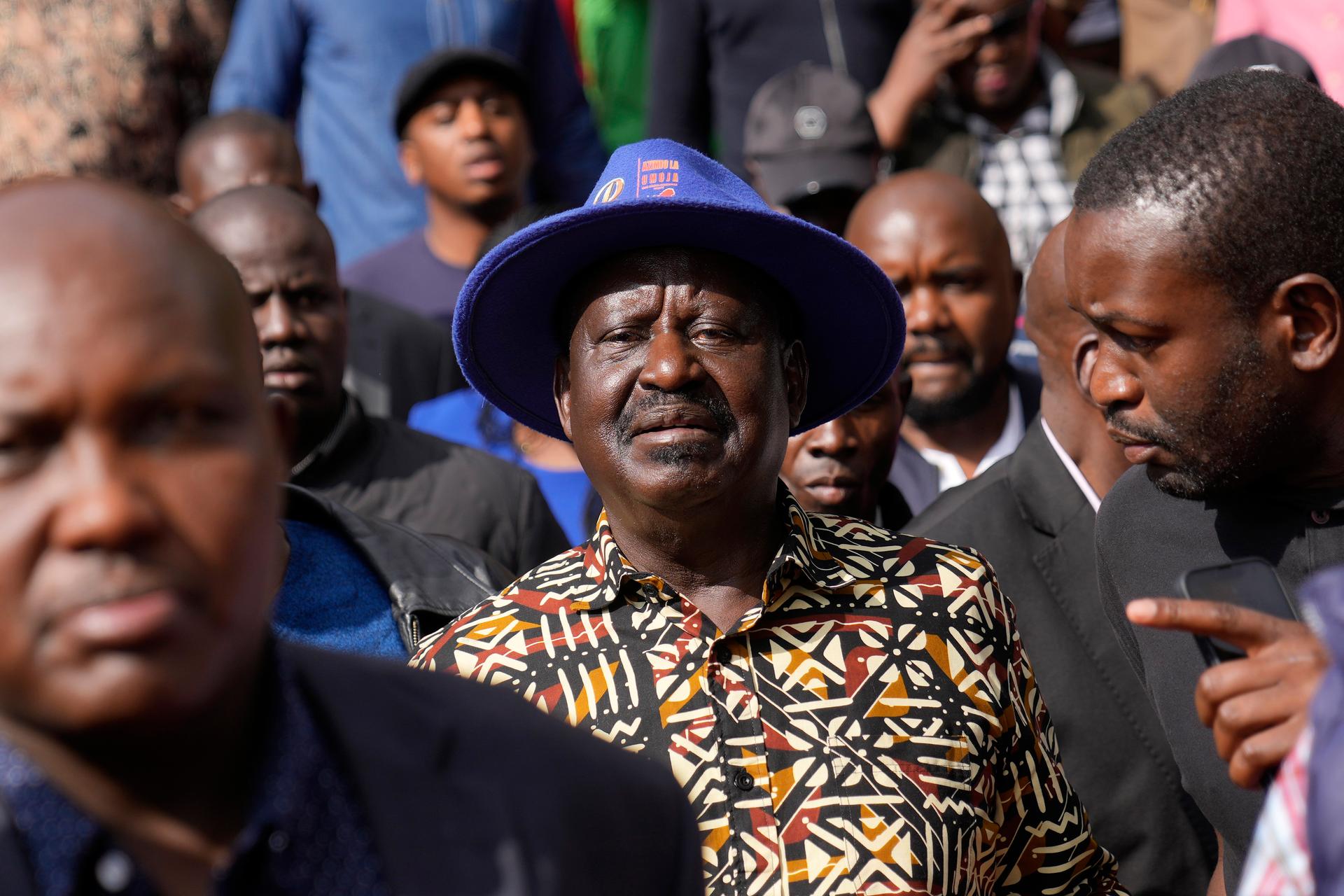Raila Odinga disputes Kenya’s presidential results in close election
While countries around the world have begun congratulating Kenya’s president-elect, William Ruto — the current deputy president — election results remain controversial and disputed within the country.
On Tuesday, Kenyan presidential candidate Raila Odinga rejected the election results, which Kenya’s Independent Electoral and Boundaries Commission (IEBC) announced on Monday after a day of tensions and fighting at the national tallying center.
Ruto won the election with a margin of 1.64% of the vote, according to the IEBC.
Odinga, who is in his fifth run for president, called the results “null and void.”
“We totally and without reservations reject the presidential results announced yesterday,” Odinga said to a crowd of supporters who cheered him on.
Odinga cited how four of seven of Kenya’s electoral commissioners have also denounced the results announced by the IEBC chairman, Wafula Chebukati.
The dissenting commissioners alleged they had not been given the chance to discuss election discrepancies or agree on the final results.
“[The results] belong to himself [Chebukati], and do not represent the declaration and announcement by [the] independent electoral and boundaries commission,” said the IEBC’s vice chairman, Juliana Cherera.
Odinga has said he will pursue all constitutional and legal avenues to protest the results of the election. He has a week to file a petition with the supreme court.
The disagreement follows an election period that many observers have lauded for greater transparency and efficiency.
Joyce Majiwa of the Elections Observation Group (ELOG) noted how the electoral commission uploaded copies of the result forms from all of the polling stations onto the IEBC website, allowing anyone to tally the results independently.
ELOG’s projected outcomes were consistent with the electoral commission’s results.
For 29-year-old Daniel Kalya, the process this time around has given him more trust in the IEBC.
He was part of a team of volunteers who also combed through polling data to tally the results.
“The overall feeling was one of pride and being impressed by how much progress had been made given the country’s history,” Kalya said.
But many of Odinga’s supporters are less trusting.
University student Francis Omondi said the disagreement among the electoral commissioners, and allegations of electoral fraud and rigging raised by Odinga’s supporters, makes him suspicious about the veracity of the results.
“There might be something behind it,” he said. “The IEBC should be independent. We want to know what went wrong.”
He said Odinga should take the dispute to court while also encouraging his supporters to be peaceful.
“Nothing like riots, nothing like chaos. We follow the constitution,” he said.
But in downtown Nairobi, taxi driver Titus Mutia is ready for the election period to be over.
“Business has really been affected by this election,” he said. “Customers are afraid to come.”
While this election has been relatively peaceful, there were reports of some protesting and burning tires in response to the election announcement. And, many shop owners shuttered local businesses over fears of violent reactions to the election.
“The election is over,” Mutia said, adding that Odinga should accept the results.
